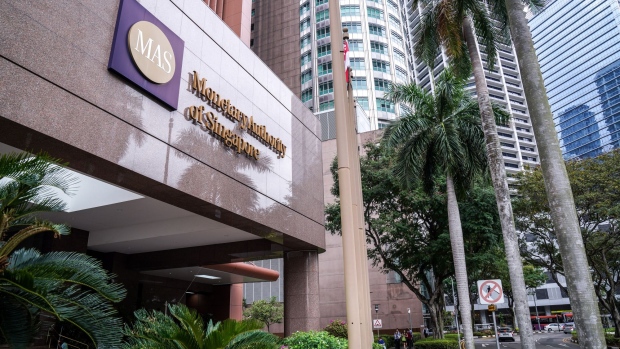Sep 28, 2020
Singapore Regulator, Banks in Talks to Extend Debt Relief Scheme
, Bloomberg News

(Bloomberg) -- Singapore’s central bank is in talks with lenders about extending the nation’s debt moratorium program beyond Dec. 31 to provide extra relief for borrowers hit by the fallout from the coronavirus pandemic, according to people with knowledge of the matter.
One of the key measures being discussed by the Monetary Authority of Singapore and local banks is the possibility of lengthening the debt relief program, with industries that have been impacted most by the crisis potentially having aid extended by as many as six months, the people said, asking not to be identified because the talks are confidential.
A tiered approach is being considered, so relief is targeted to those needing the most help, one of the people said. Details of the plan and what types of borrowers will be covered under an extension are still being finalized, they said.
Under the current measures announced in March, small and medium-sized firms can opt to postpone principal payments on their secured term loans until the end of the year. Consumers can defer both principal and interest payments on residential mortgages. Individuals suffering a loss of income can ask for a lower interest rate on unsecured credit.
An extension to the debt moratorium would help mitigate the so-called “cliff effect” on consumers and businesses once relief measures end. Authorities are using both fiscal and monetary tools to provide support against what may be a record recession that came with the pandemic. The government introduced additional support measures of S$8 billion ($5.8 billion) last month to cushion the blow from the virus, bringing Singapore’s total pledged pandemic aid to more than S$100 billion.
Easing Back
MAS Managing Director Ravi Menon in July said the regulator was talking to banks and finance companies about how to ease borrowers into gradually resuming repayments once the debt relief measures expire.
“We want to avoid ‘cliff effects’ of a sudden withdrawal of these reliefs,” Menon told reporters during the publication of the MAS annual report. The central bank has eased monetary policy to help stabilize the economy, and has ensured ample liquidity at financial institutions. It also asked Singaporean banks to prioritize lending by capping their dividend payouts.
While Singapore’s rate of coronavirus infection is falling and authorities are trying to gradually reopen the economy, many restrictions on businesses and travel remain in place.
Like their global competitors, Singapore’s largest lenders DBS Group Holdings Ltd., Oversea-Chinese Banking Corp. and United Overseas Bank Ltd. are bracing for a wave of soured debts. Collectively, they’ve set aside about S$4 billion in provisions for both general and problem loans in the first half of the year, according to data tracked by Bloomberg Intelligence analyst Rena Kwok.
As of June 30, debts under relief programs accounted for about 5% of DBS’s total loan book, 10% of OCBC’s, and 16% of UOB’s, according to their second-quarter results.
©2020 Bloomberg L.P.